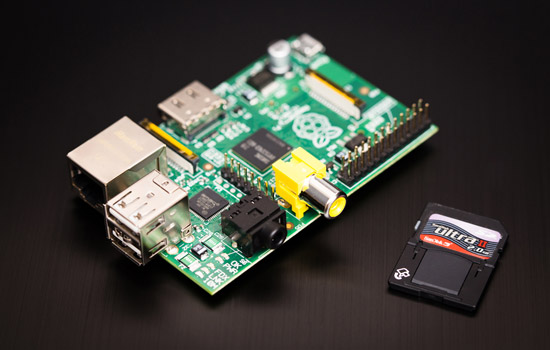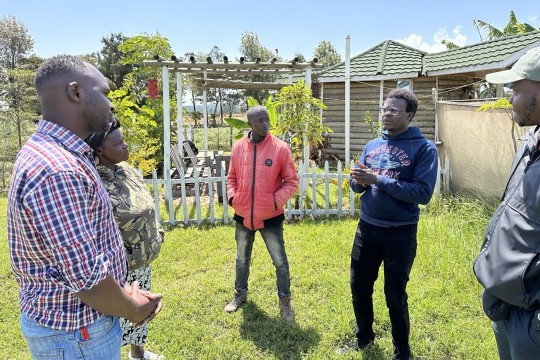Computing ‘rock star’ opens ARM Developer Day
RIT hosts Rob Bishop for campus and public workshops about building today’s apps
Rob Bishop
To geeks, he’s a rock star; to educators, he is equally cool.
Rob Bishop and the Raspberry Pi Foundation are providing tools to make computing and coding very cool for a generation of young people who tend to access other people’s apps rather than create their own.
Bishop, an engineer and developer for the nonprofit organization, will open the third annual ARM Developer Day at Rochester Institute of Technology at 8:30 a.m. Nov. 30 in the Student Innovation Hall.
Participants can register online for the event, which is free and open to area college students and faculty.
The ARM Developer Day gives computer science, computer engineering, electrical engineering and information technology students the opportunity to learn about current Open Source tools available.
Bishop’s address will be about the Raspberry Pi Foundation, which developed a computer operating system the size of a credit card but with the power of a desktop PC. It has gained in popularity throughout the United Kingdom and now in the United States for its ease of access and the ability for users to connect sensors, audio and video devices, for example. The device, despite its size, is comparable to a 300MHz Pentium 2 processor or an early version of Xbox 1, according to the organization. It can be used as a foundation for a variety of computer applications, but also is accessible for “tinkering” and re-programming. The focus of the organization is to not only draw more young people into computing, but to give them a platform to improve the computing systems found in most devices today.
Raspberry Pi will be one of several systems featured at the RIT ARM Developer Day event. There will be 16 workshops on topics such as building computer systems using the ARM development platforms, understanding systems such as Freedom-board from Freescale, Stellaris Launchpad from Texas Instruments, FreeSoC from Cypress, SmartFusion from MicroSemi and mbed from NXP. In the evening, registrants can participate in an ARM Hack-a-Thon.
“Using these Open Source platforms, students learn how to program, hook up sensor devices and connect them to the cloud,” says Antonio Mondragon, event coordinator and assistant professor in the electrical, computer and telecommunication engineering technology department in RIT’s College of Applied Science and Technology.
Students coming into computer science and computer engineering programs have lacked some of the foundational skills in programming, says Mondragon. Having had the advantage of Google for informational searches and a broad variety of established applications, many students have not had the experience experimenting on the inner components. Systems like Raspberry Pi can be the building blocks for students to build their own applications and improve current systems. “Rather than just using ‘Mario,’ they can make their own games.”
After hearing about the Raspberry Pi Foundation at the recent World Maker Faire in New York City, Sajin George recommended the organization for this year’s ARM Developer Day event.
“It was inspirational,” says the electrical engineering graduate student and co-event coordinator. “If you have an interest in computers, you can do this and make new things. It’s simple to learn and explore. With the Raspberry Pi, the mystery of computers is no longer there.”
On Dec. 1, Bishop will present an overview of the Raspberry Pi to area high school teachers, students and the general public. His presentation takes place at 9 a.m. in the Golisano Hall auditorium in the B. Thomas Golisano College of Computing and Information Sciences. It is part of a full-day event, “Come Taste the Pi” from 8 a.m. to 4 p.m. at The McGowans Commons in Engineering Technology Hall. The full-day workshop is free and open to the public, with seating limited and registration required.
 The Raspberry Pi, despite its size, is comparable to a 300MHz Pentium 2 processor or an early version of Xbox 1. It can be used as a foundation for a variety of computer applications, but also is accessible for “tinkering” and re-programming.
The Raspberry Pi, despite its size, is comparable to a 300MHz Pentium 2 processor or an early version of Xbox 1. It can be used as a foundation for a variety of computer applications, but also is accessible for “tinkering” and re-programming.














